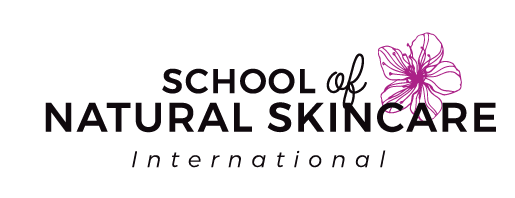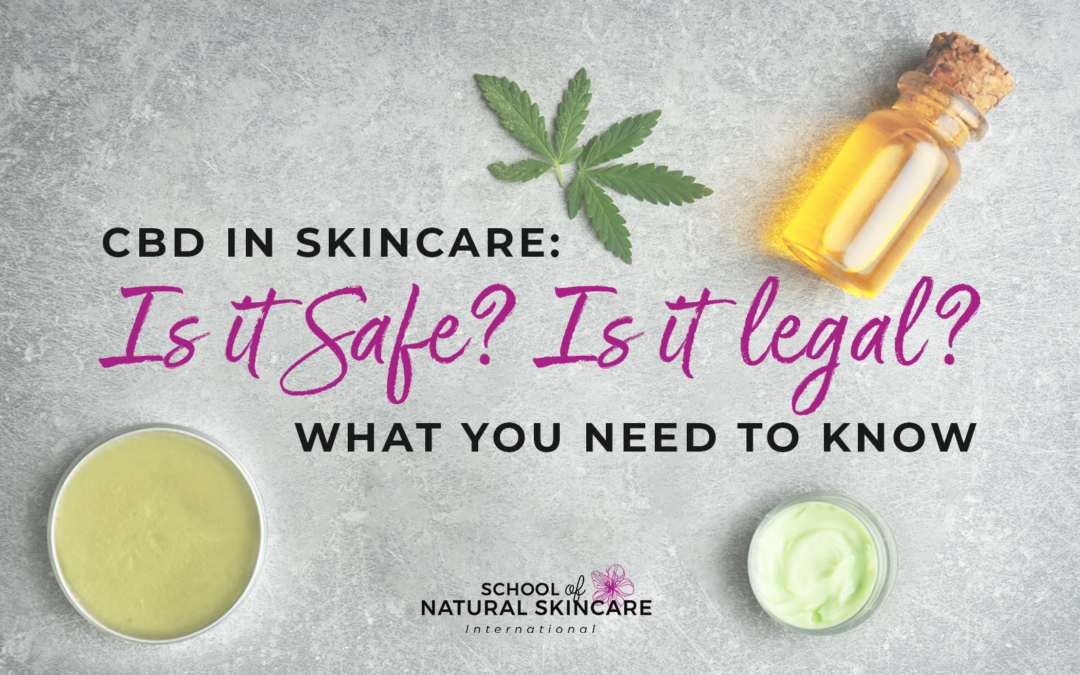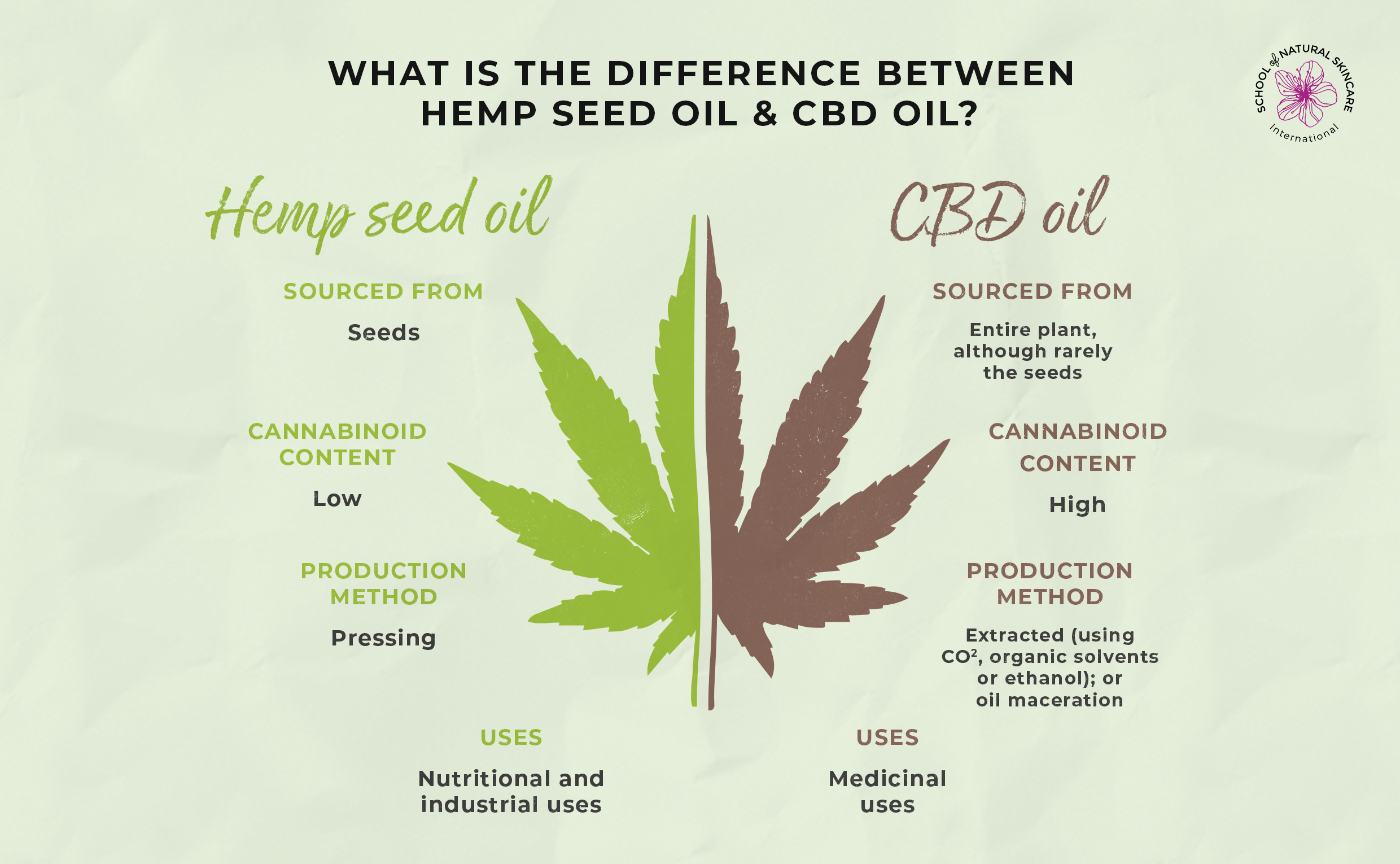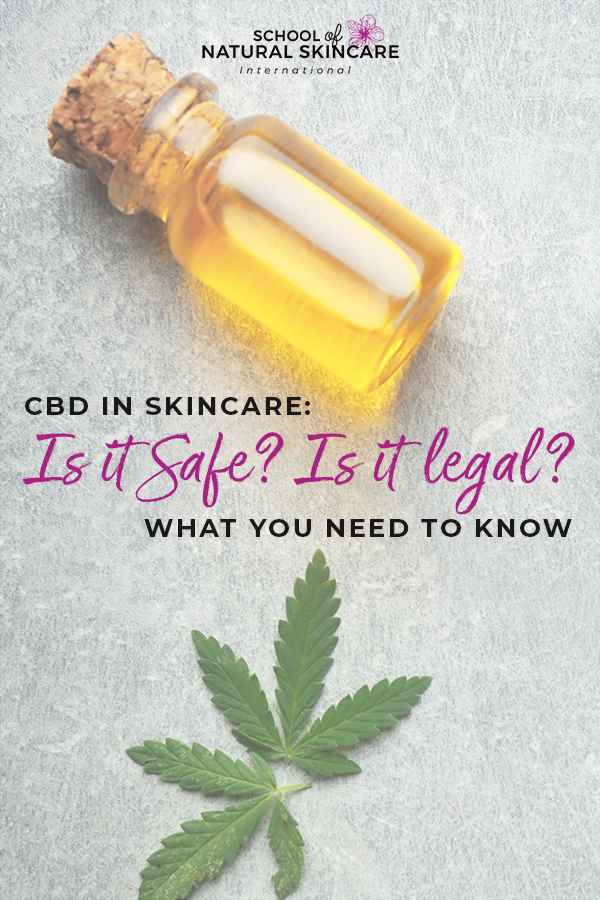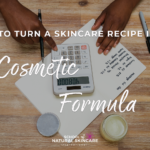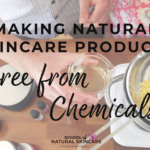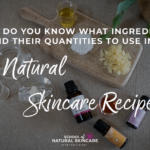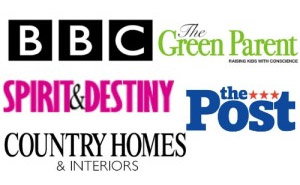You’ve probably heard about CBD being used in all kinds of products, from coffee and chocolate and gummy treats to salves and creams applied directly to the skin. People who love CBD swear by its benefits! Others might not be so sure it’s working for them.
You might also have heard about hemp seed oil—another product derived from the same cannabis plant.
We wanted to investigate these new and exciting ingredients, and hopefully shed a bit of light on what they are, whether they are safe to use (and legal in your area!) and what you need to know when incorporating CBD, hemp seed oil, or other hemp-derived ingredients into your skincare products.
This article is the perfect introduction to CBD oil in skincare but to find out more, download our Free Guide! Hemp and CBD: A quick guide for natural skincare formulators.
You will discover:
- The difference between hemp, CBD and cannabis.
- What hemp seed oil is, its benefits for skincare and how to use it.
- What CBD is, its benefits for skincare and how to use it.
- The difference between full-spectrum CBD, broad-spectrum CBD, and CBD isolate.
- How to check the quality of your CBD.
Plus you’ll receive:
- A free formula for a Healing Hemp Balm with CBD
- A supplier list: Where to buy CBD for skincare.
Hemp? CBD? Marijuana? Are they all the same?
First things first: Hemp is a plant, which has the scientific name Cannabis sativa. There are many strains of Cannabis sativa plant species.
Both industrial and medical cannabis varietnes originate from the same plant species, but one produces psychoactive compound—THC, or Tetrahydrocannabinol—while the other one doesn’t. Industrial cannabis, or hemp, contains no (or better yet, less than 0.3% of dry weight) psychoactive molecules, and is thus legal in most countries of the world.
Sometimes, Hemp, or Cannabis, is called Marijuana, when it is a strain which contains those psychoactive cannabinoids. Marijuana as a plant and its extracts are still considered illegal in most countries, with some exceptions.
Is CBD legal? What about Hemp?
This depends largely on where you live, and the current laws in your area.
In the United States, CBD is legal at the federal level, but state laws vary. Some states allow medical and recreational use of Marijuana and associated Cannabis-derived products, while other states allow only medical usage, or only CBD oil—and three states have outlawed all products completely.
Outside the US, each individual country’s laws will govern the legality of CBD, Hemp, and all associated Cannabis-derived ingredients, so be sure to check with your local laws!
Additionally, if you are formulating products with the intent to sell them, be very aware of what is and isn’t allowed to ship across borders.
What is CBD?
There’s a lot of misinformation out there about what CBD is, and what it isn’t.
CBD stands for Cannabidiol, which is a chemical compound found in the Cannabis genus of plants.
Plants produce many different molecules, that have a wide variety of functions in the plant’s physiology.
An important group of compounds, synthesized by Cannabis plant species, are cannabinoids. They are a very diverse group of molecules; so far 113 different cannabinoids have been identified. One of the most well known is CBD.
While the primary ingredient in these plants, THC, is what produces the “high” effect of ingesting the cannabis plant, CBD does not produce this “high”. So if you’re worried about that, you needn’t be.
Okay but… will I get high if I use CBD or Hemp seed oil topically?
No, you won’t. CBD and legal hemp extracts don’t contain enough THC to cause any psychoactive reactions.
Is Hemp Seed Oil the same as CBD Oil?
We talk about this in much more detail in our Free Guide, but let’s get straight to the point on this one. No. Hemp seed oil and CBD oil are different.
The two oils are derived from the same plant, so there will be some overlap of ingredients, but they are different.
Depending on where you live, hemp is usually regulated so that it can only be sold with a certain amount of THC. This low-THC plant is a wonderful source of renewable fiber which can be used to produce things like paper and fabric, and can be pressed, producing hemp seed oil.
In skincare, hemp seed oil (Cannabis sativa) can be used on the skin, as a cleanser and moisturizer. It can even be consumed as a source of healthy fats! The oil is obtained by cold pressing of the hemp seeds.
On the other hand, “natural” CBD is extracted from hemp plants in a variety of extraction methods: supercritical CO2 extraction, ethanol extraction, oil maceration (infusing the plant material that contains CBD in another oil e.g. olive, coconut or sunflower), or extraction with other types of organic solvents.
Talking specifically about “CBD oil” (as this article is about hemp seed oil and CBD oil) this is the version that has been infused into another carrier oil, such as safflower, coconut, or olive oil. CBD oil can also be Hemp extract (CO2 extract for example) diluted in a carrier oil. In fact, this is the most common terminology. The fact that another carrier oil is used makes formulating skincare products with CBD oil a little more tricky.
When you formulate with CBD oil, you need to think very carefully, not just about CBD oil itself, but also the oil it is infused in i.e. coconut or olive or safflower, since the properties and characteristics of those oils differ from one another.
The added benefit of the oil infusion means that not only are you getting the benefits of CBD itself–as well as any of the other active compounds–you’re also getting the benefits of the carrier oil it is infused in!
Formulating natural skincare products with Hemp and CBD
CBD has become one of the biggest trends in skincare but there is still a lot of confusion surrounding it so when you are considering formulating natural skincare products with hemp-derived ingredients, or CBD, there are a few things to consider.
You’ll need to know:
- The difference between hemp, CBD and cannabis.
- What hemp seed oil is, its benefits for skincare and how to use it.
- What CBD is, its benefits for skincare and how to use it.
- The difference between full-spectrum CBD, broad-spectrum CBD, and CBD isolate.
- How to check the quality of your CBD.
You’ll find all of this information in our handy free guide!
Hemp and CBD: A quick guide for natural skincare formulators
CBD has become one of the biggest trends in skincare but there is still a lot of confusion surrounding it.
Our quick guide will explain:
- The difference between hemp, CBD and cannabis.
- What hemp seed oil is, its benefits for skincare and how to use it.
- What CBD is, its benefits for skincare and how to use it.
- The difference between full-spectrum CBD, broad-spectrum CBD, and CBD isolate.
- How to check the quality of your CBD.
Plus receive:
- A free formula for a Healing Hemp Balm with CBD
- A supplier list: Where to buy CBD for skincare.
Love learning about CBD? Save this image below on Pinterest so you can be sure to remember!
